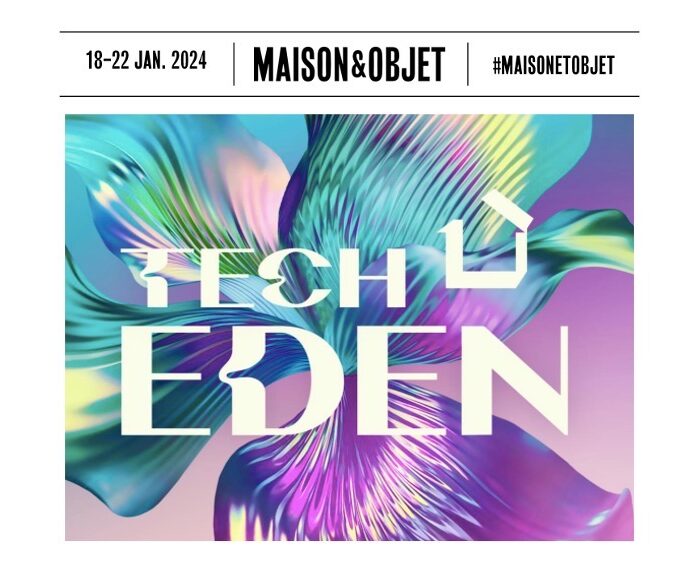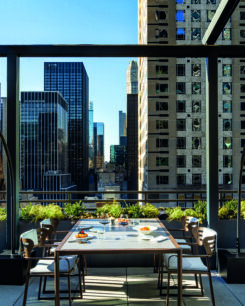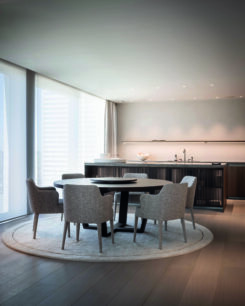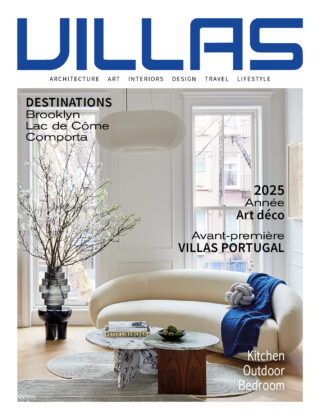Sommaire
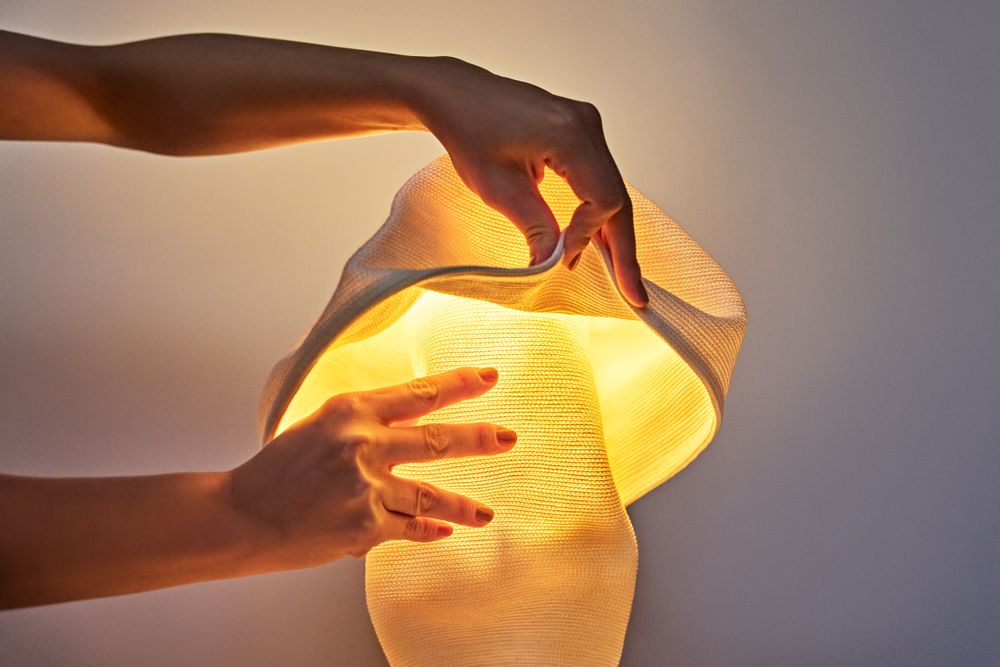
Mobje | Posing Lamp by Mobje with adjustable shade
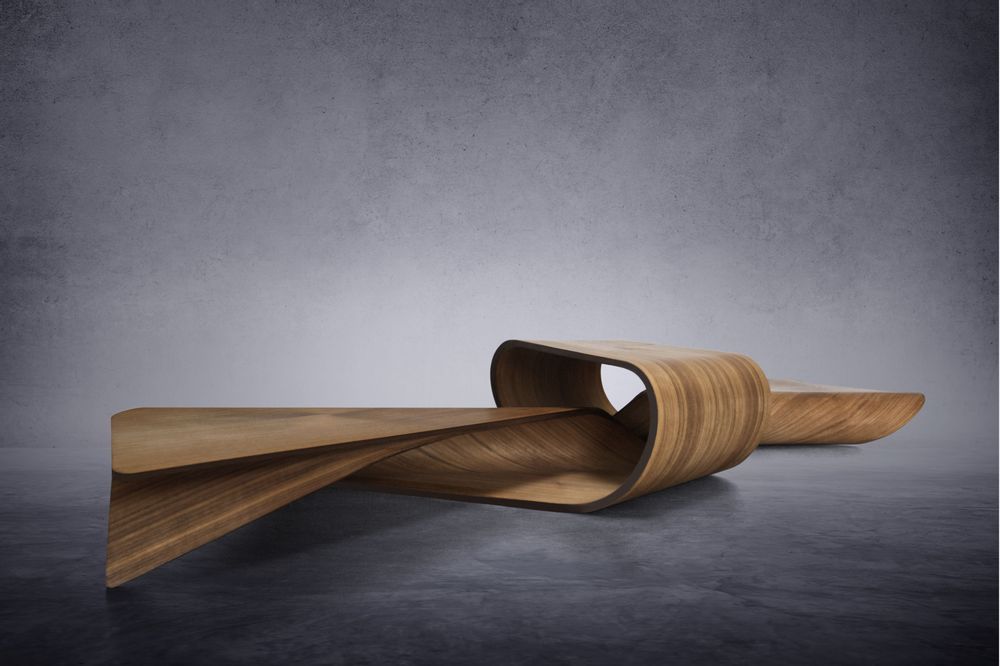
F.lli Reifer | Table sculpturale Rami Series, Umi, collection Fluid Wood, par F.lli Reifer
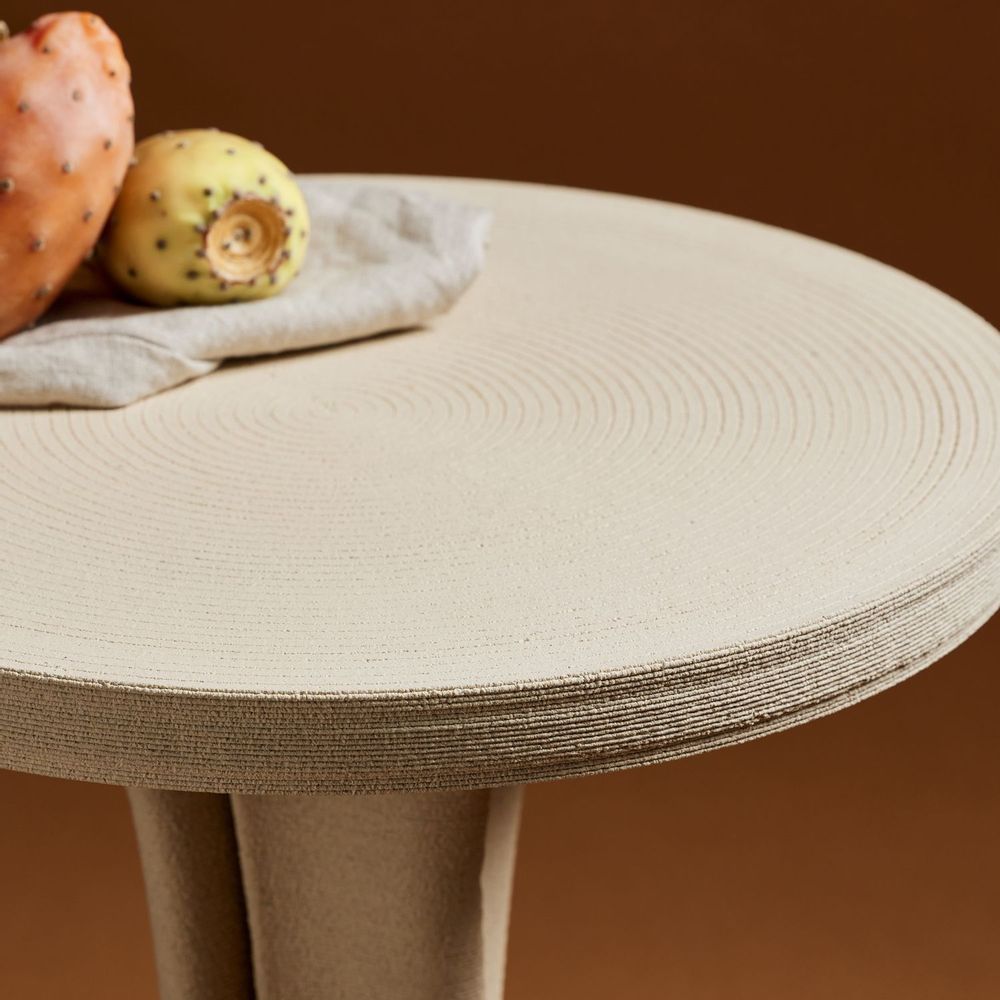
Monolight side table printed in 3D ceramic by Keramik
A new paradise
In the words of designer Ramy Fischer, Designer of the Year 2020: “Technologies are multiplying creativity and innovation in craftsmanship. But above all, they give rise to a new generation of craftspeople who hybridize techniques and materials, and in so doing help us designers to move forward”. Reconciling technology and nature, the theme of Tech Eden, inaugurating the year 2024, is resolutely positive, in continuity with the previous edition, combining dreamlike shapes and colours, in a vein of futuristic biophilia, conducive to the well-being of body and mind. It has been developed for design, crafts, interior architecture, retail and hospitality, reflecting the hybrid nature of today’s living spaces. For this year’s show, there are 3 major trends to discover: sustainable minimalism, sustainable brutalism with re-use and recycled materials, and the fluidity of organic forms. Shelter is becoming a protective, modular cocoon that can be adapted to different activities. The materials, designs and shapes of objects and furniture are adapting to this trend, which has already been underway for several years. In the hospitality sector, cafés are being transformed into wellness areas, spas are invading hotel rooms and sports halls are invading public transition areas such as airports and stations, thanks to recent immersive technologies.
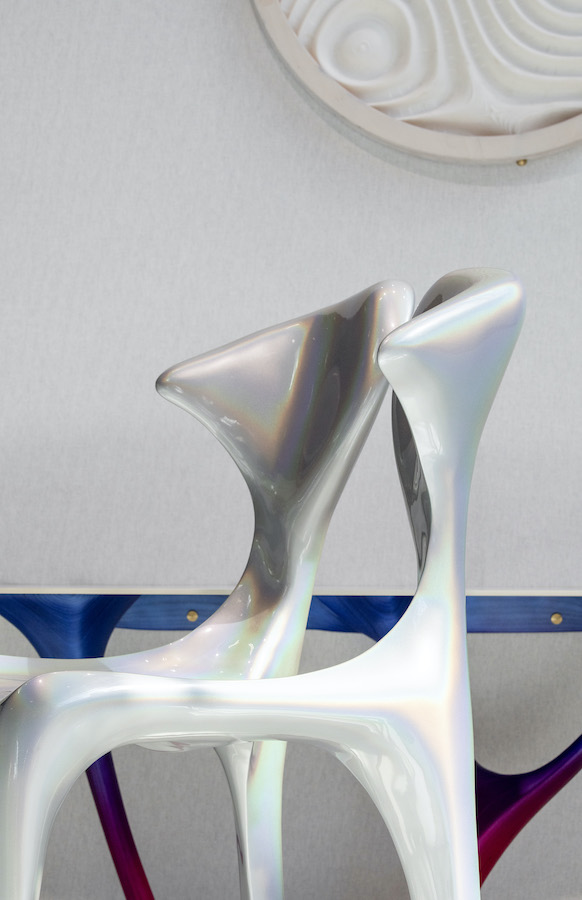
Elodie Dupuis | Dune Holo chair by CyrylZ
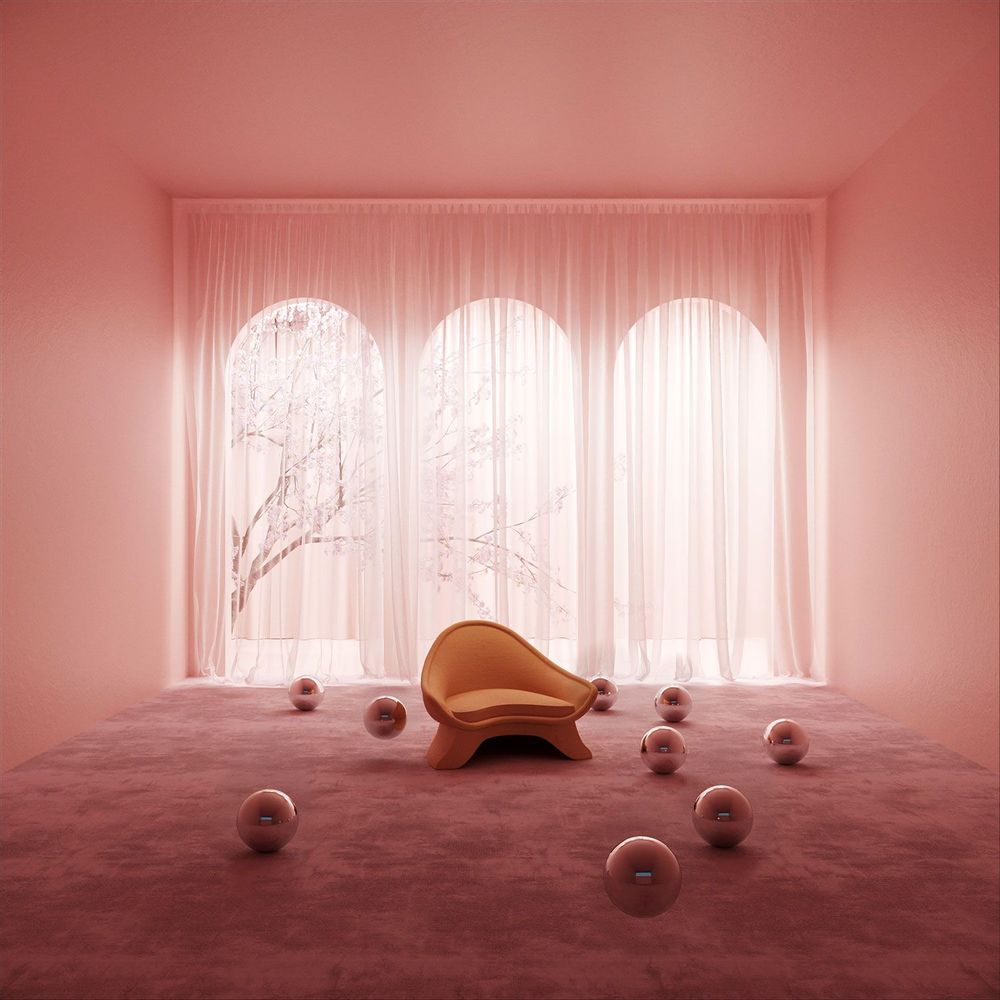
Munna | Pema meditation chair by Munna.
Will design save the world?
In this spirit, the Once Upon a Dream room-capsule, designed by Mathieu Lehanneur, designer of the year 2024, for the reopening of the Hôtel de Marc, offers a restful sleep, thanks to an artificial and programmable management of the natural day-night cycles. Today’s design reconciles nature and technology. It uses technology to meet our fundamental needs. Jean-Louis Frechin, director and founder of NoDesign.net and a lecturer at the Ecole Camondo, believes that we are entering an era of fusion between our natural environment and technology. “This new nature, the Anthropocene, is suffering from the imbalances caused by an abuse of technology and an ill-considered use of the planet’s resources. It is on the basis of physics, scientific phenomena and the right technologies that creators will be able to develop sustainable and balanced solutions. In the age of artificial intelligence, when many objects can be produced automatically, the only question is how we want to live in this world. Design offers a political and philosophical reflection that highlights the responsibility of those involved in changing behaviour in order to preserve and save our planet.
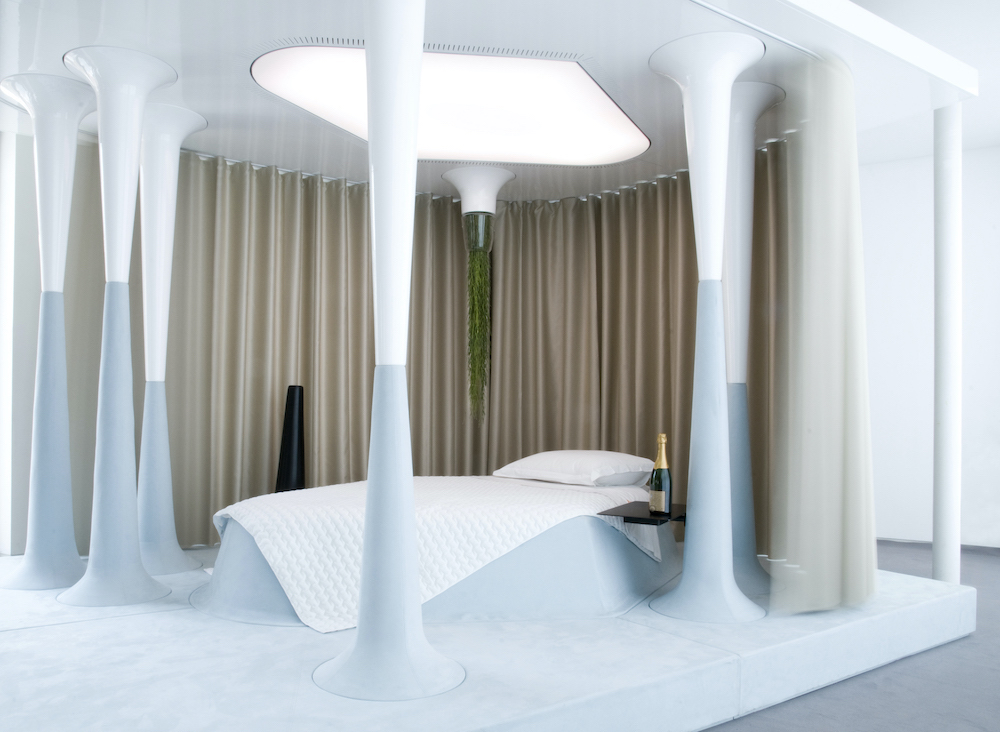
Felipe Ribbon | Once Upon a Dream, Smart Sleep installation, by Mathieu Lehanneur.
The age of exchange
This year, the Rising Talent Awards are highlighting the interaction between different disciplines. Among the members of the jury is Belgian designer Lionel Jadot, who created Zaventem Ateliers near Brussels, an incubator for creative people who work together to initiate innovative projects exploring a range of skills. There is also Joseph Grima, director of the Design Academy Eindhoven… Among the Tech talents, the Frenchwoman Audrey Large, based in Rotterdam, proposes creations between the material and the immaterial. WINT Design Lab works with technicians, biochemists, software developers and materials scientists to design more responsible objects. As for Nelson Fossey, creator of Index Office, he believes that technology can simplify the life of the craftsman at every stage of production and increase experimentation, although this doesn’t prevent him from drawing by hand!
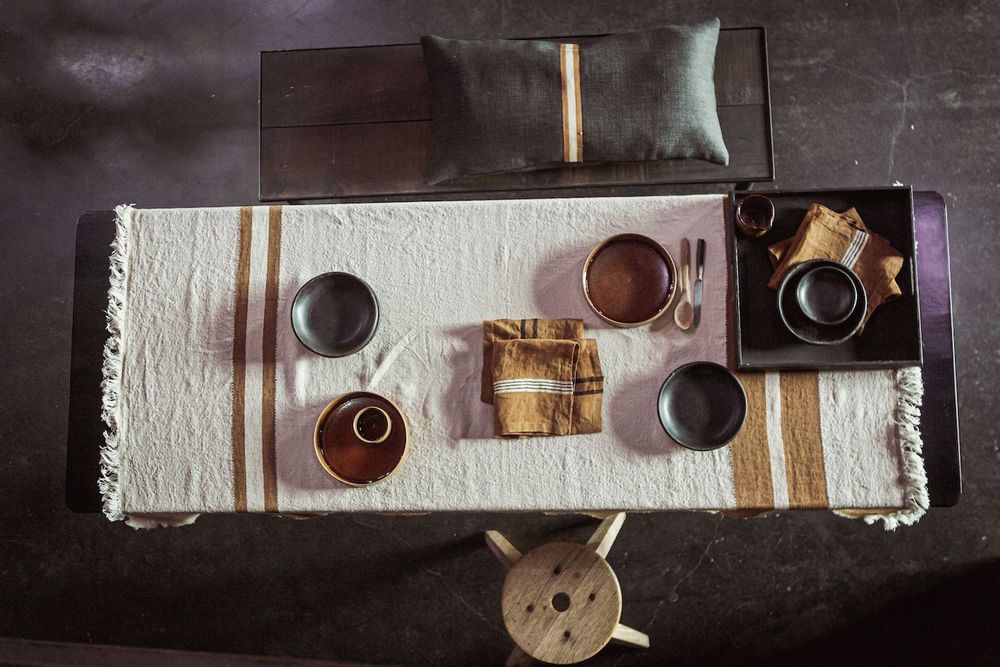
Libeco | Libeco Home, la table belge.
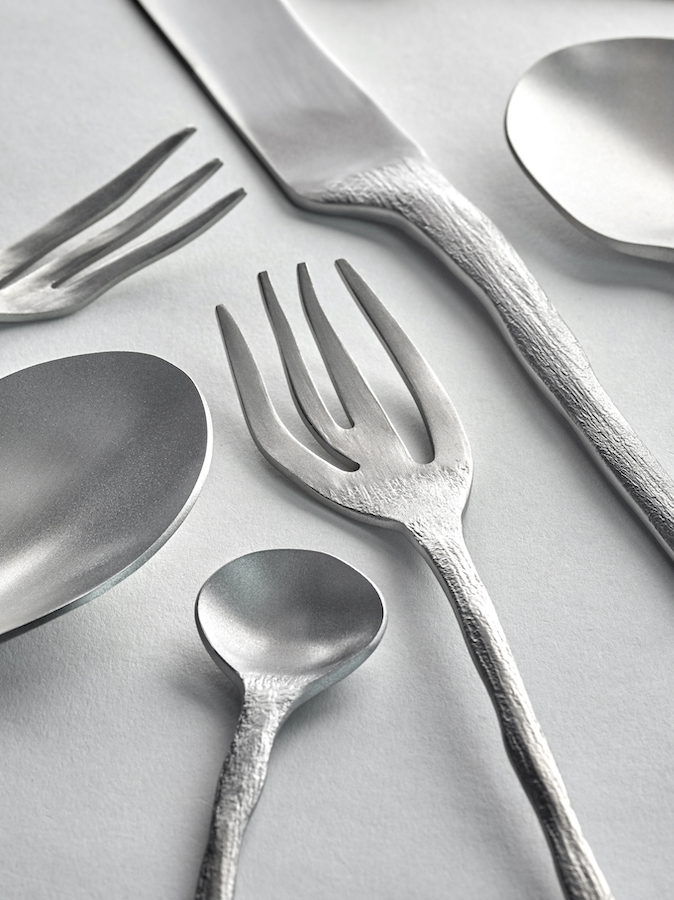
Serax | Flora Vulgaris collection by Roos Van de Velde, Serax.
Reinvented processes
The Savoir-faire talents showcase the rattan work of Aurélie Hoegy, who sublimates it through sculptural furniture. She discovered basketry in Bali, with its craftsmen who involve their whole body in weaving this material. Jenna Kaës is interested in funerary art, an almost unexplored field in the world of design. Emma Cogné, a resident at the Ateliers de Zaventem, plunges us into the weaving of the future with wefts made from recycled plastic tubes recovered from the street, building sites and factories. They are transformed into room dividers, screens, curtains and blinds. She makes everything by hand, with no machines or looms. Line and Raphaël use 3D augmented marquetry, with relief volumes cut out digitally, assembled and then glued by hand.
Committed players
The 4th edition of the “Future on Stage” showcase of French and international talent will feature the new winners of the competition, which honours 3 companies committed to sustainable development. French brand Anga is developing panels made from recycled plastic, symbolising the marble of the 21st century. The Greek company Bluecycle, which manufactures 3D objects from marine waste, also caught the eye of the jury. As for the Portuguese agency Tosco studio, which combines craftsmanship and eco-design in a spirit of slow deco, with concrete furniture, it updates a historic material of modernist architecture, developing it in a collection of furniture with fluid and organic shapes, marked by new marbled decors.
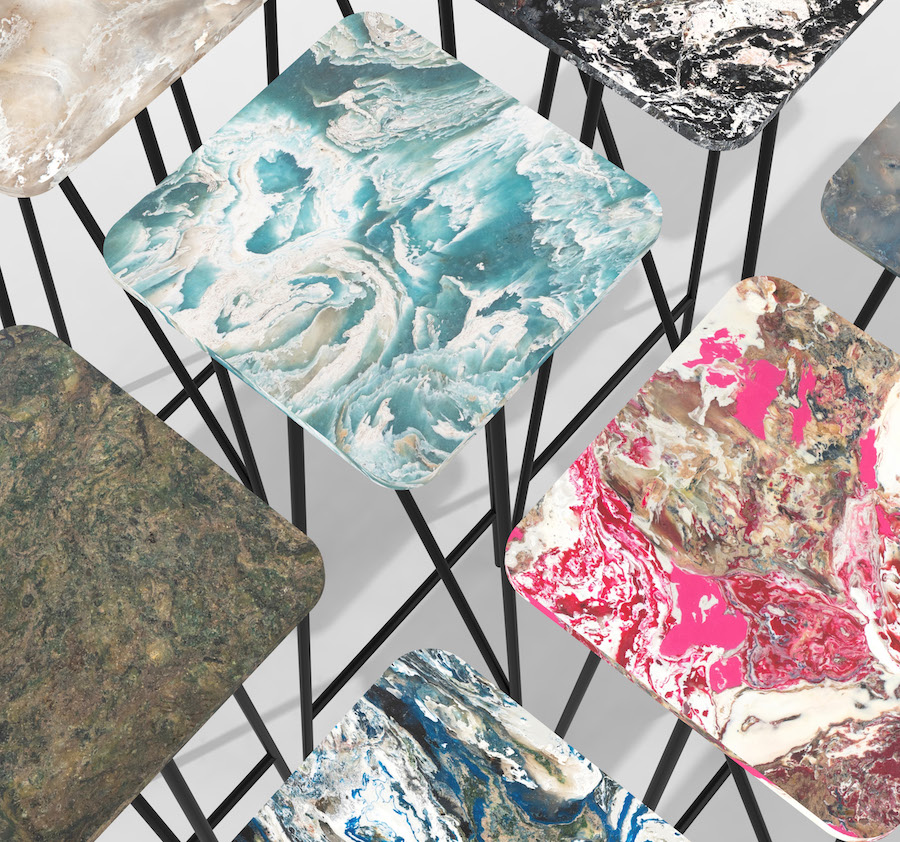
Anga | Anga creations.
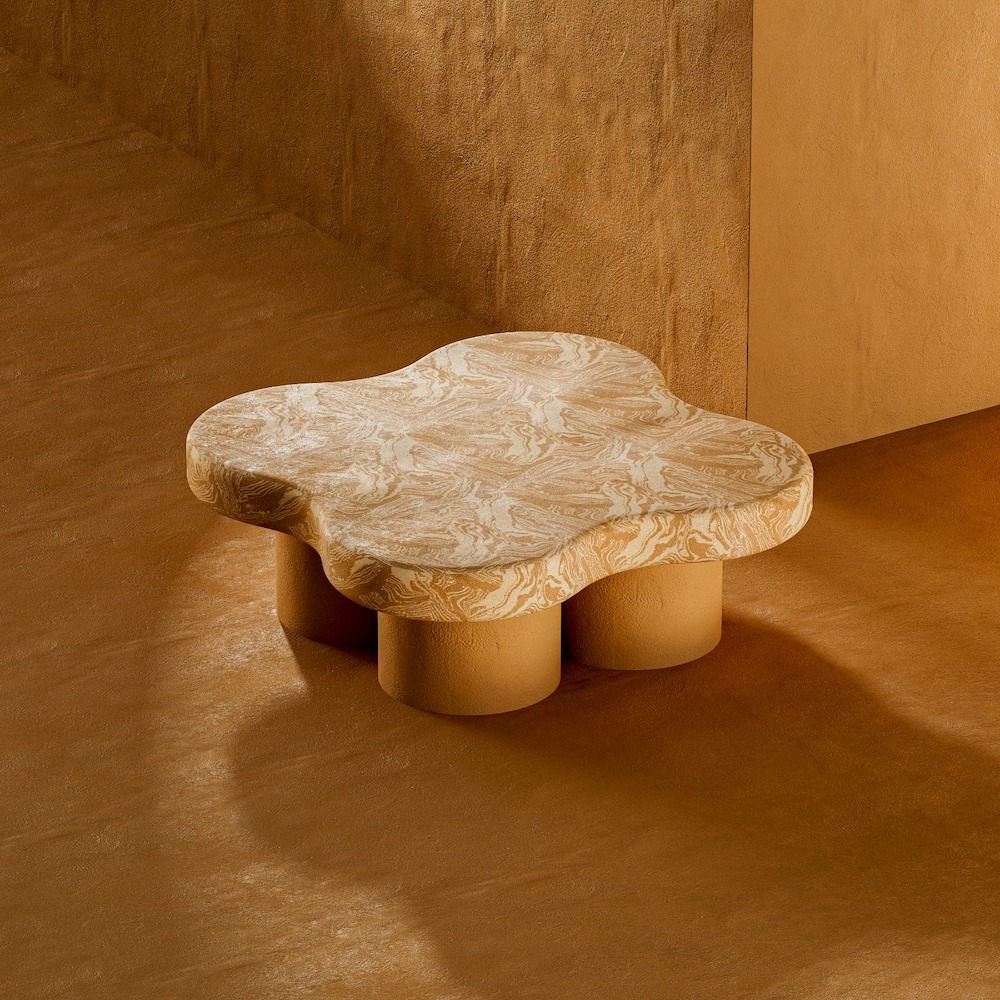
Tosco | Marbled concrete table, by Tosco.
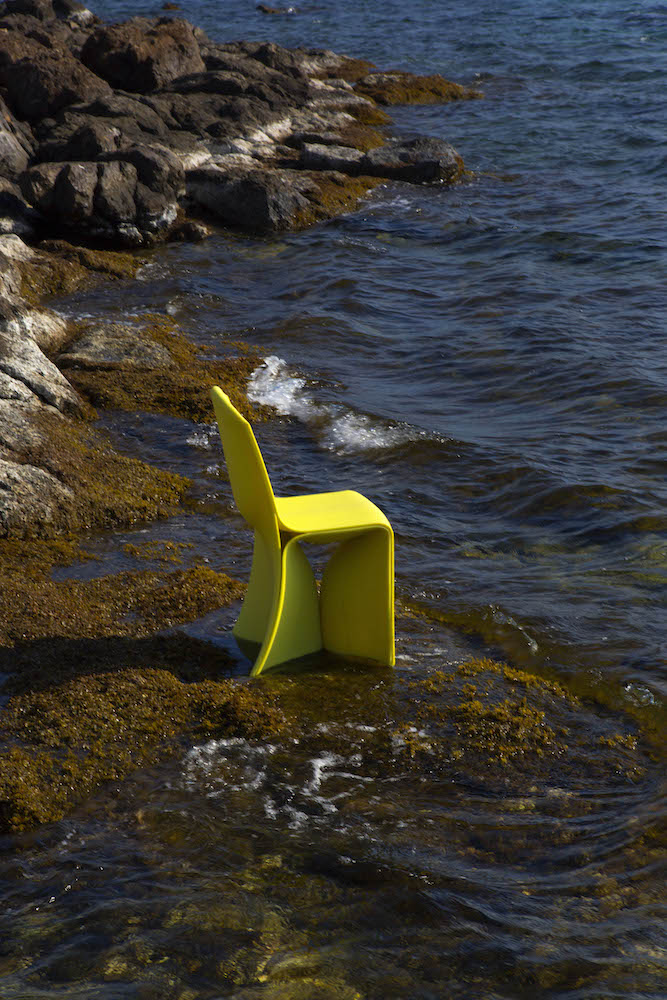
Bluecycle | Chair by Bluecycle.
An acclaimed signature
Finally, Mathieu Lehanneur, named designer of the year 2024, is the scenographer of a visionary space dedicated to him, reflecting his research and his career. Named Outonomy, the showcase features his creations combining science and design, technology, art and craftsmanship. By juggling all these elements, he creates objects that once again draw their inspiration from nature, but also from history. In 2007, he created the revolutionary Andrea air purifier, in collaboration with Harvard University. During the 2020 pandemic, he designed State of the World, a collection of aluminium sculptures showing the historical variations inscribed in the age pyramids of each country. At the show, he will unveil a dreamlike, self-sufficient shelter concept, while he designed the Olympic and Paralympic Torch for the Paris Games. Mathieu Lehanneur takes visitors on a journey of joyous thought, and castigates latent anxieties as he charts a constructive course for the world of tomorrow. A personality that combines poetry, imagination and credibility!
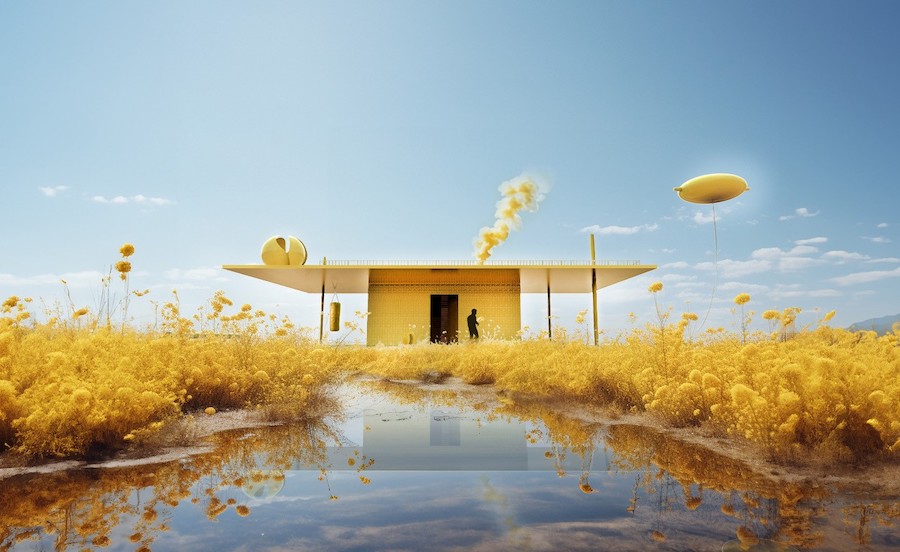
Outonony outdoor scenography, by Mathieu Lehanneur
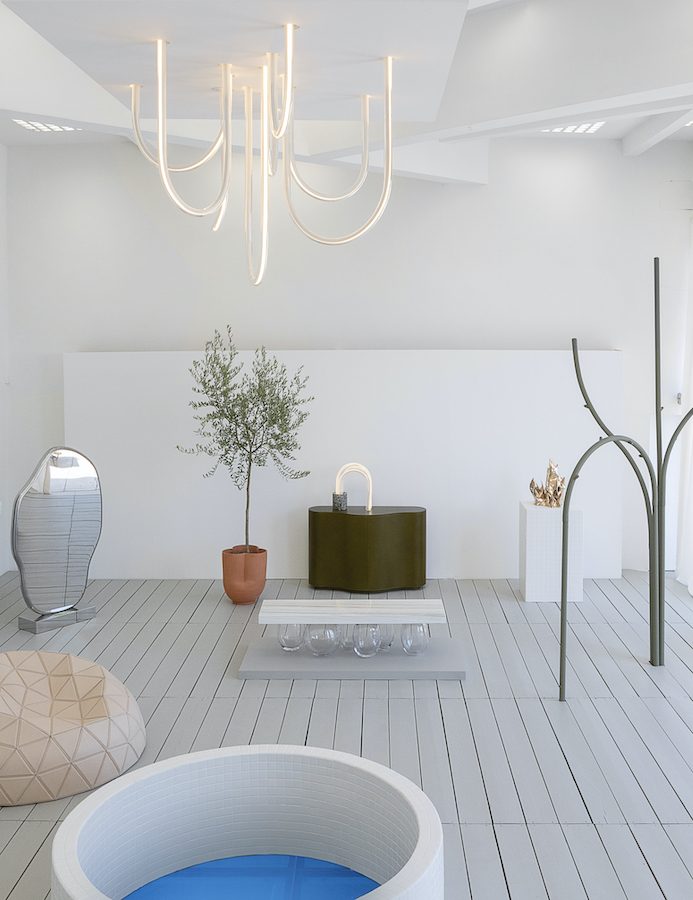
Felipe Ribbon | Designs by Mathieu Lehanneur.
More information: Maison-objet.com
